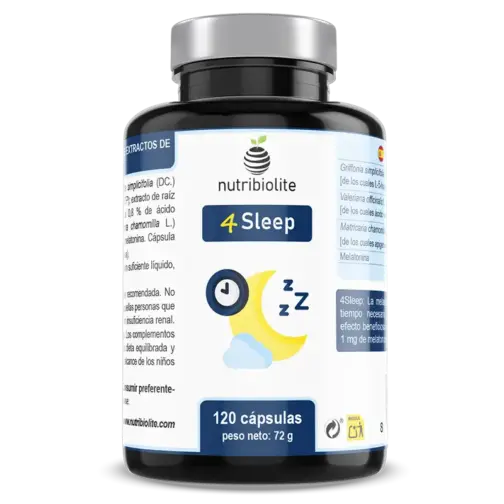A recent clinical trial from the Institute for Biomedical Research at the University of Barcelona, published in Food & Function in 2025(DOI: 10.1039/d5fo00971e), showed that incorporating 40 grams of walnuts into dinner for eight weeks increased nighttime levels of a urinary marker of melatonin and promoted greater sleep stability, as measured by activity clocks, in healthy young adults. The study, funded by the California Walnut Commission, included 76 participants and alternated periods with and without walnuts.
The results suggest that this small change may reinforce the natural rhythm that prepares the body to get a better night’s rest. The difference was not so much in more hours slept, but in more stable, less interrupted sleep with smooth transitions between night phases.
Walnuts, tryptophan and melatonin, a natural chain for rest
Walnuts are much more than just a snack. They provide plant-based melatonin, the chemical “messenger” that tells the brain when it’s time to sleep. They also contain tryptophan, an essential amino acid that the body converts first to 5-HTP, then to serotonin and finally to melatonin.
Each step in this chain depends not only on dietary intake, but also on context: dim light, light digestion and regular schedules help activate these physiological pathways. So adding nuts to dinner can be that small gesture that supports the silent work of the internal biological clock.
Simple nightly rituals enhance natural effects
A good night’s sleep starts long before you close your eyes. Science confirms our intuition: dimming the lights, eating an early dinner and choosing foods rich in tryptophan such as nuts or oatmeal pave the way for an adequate release of melatonin.
You don’t need to change your whole life: just add small, consistent rituals every night. A regular routine helps the body know when to begin its transition to deep rest, minimising nighttime awakenings or that fuzzy feeling of not having really rested.
When routine is not enough, how does 4Sleep fit into this physiological process?
Sometimes life changes, prolonged stress or shift work can disrupt our internal rhythms even if we maintain good habits. In such cases, supporting the natural tryptophan-melatonin pathway makes physiological sense.
This is where 4Sleep comes in, designed to support this same biochemical sequence without artificially forcing or blocking it. Its formula combines pure melatonin (1 mg), a dose validated by European authorities to promote the onset of rest; natural 5-HTP extracted from Griffonia simplicifolia (the direct link between tryptophan and serotonin); and standardised extracts of valerian and chamomile that support mental relaxation without chemical sedation or residual drowsiness.

Melatonin 1 mg and 5-HTP with relaxing plants to facilitate the onset of rest, as a complement to specific nocturnal habits. Responsible use.
Frequently asked questions about melatonin sleep and night-time habits
When should I use a supplement like 4Sleep?
You may want to consider extra support if your schedule changes a lot due to work or travel, or if you have occasional difficulty falling asleep despite your night-time routine and a diet rich in tryptophan such as walnuts.
Why is melatonin combined with 5-HTP and plant extracts?
This combination follows the natural pathway from dietary tryptophan to endogenous melatonin and includes traditional plants such as valerian and chamomile which provide a sense of calm without causing dependence or heavy sedation.
Can it be taken together with foods rich in tryptophan?
Yes, they complement each other well because they reinforce different stages of the same physiological process of healthy sleep, especially if you have light dinners low in animal fat or simple sugars.
Does it produce morning drowsiness or dependence?
No, not when used as indicated, thanks to its physiological profile, low dose (1 mg) and total absence of hypnotic drugs, and it does not block the body’s own production or alter the normal sleep-wake cycle.
Is it useful to take it every night or only when there are disturbances?
You can adapt its use according to personal need as an established part of your daily routine or only during demanding seasons, always prioritising basic healthy habits rather than relying exclusively on the supplement.
This content is informative and does not replace the advice of a health professional.
















